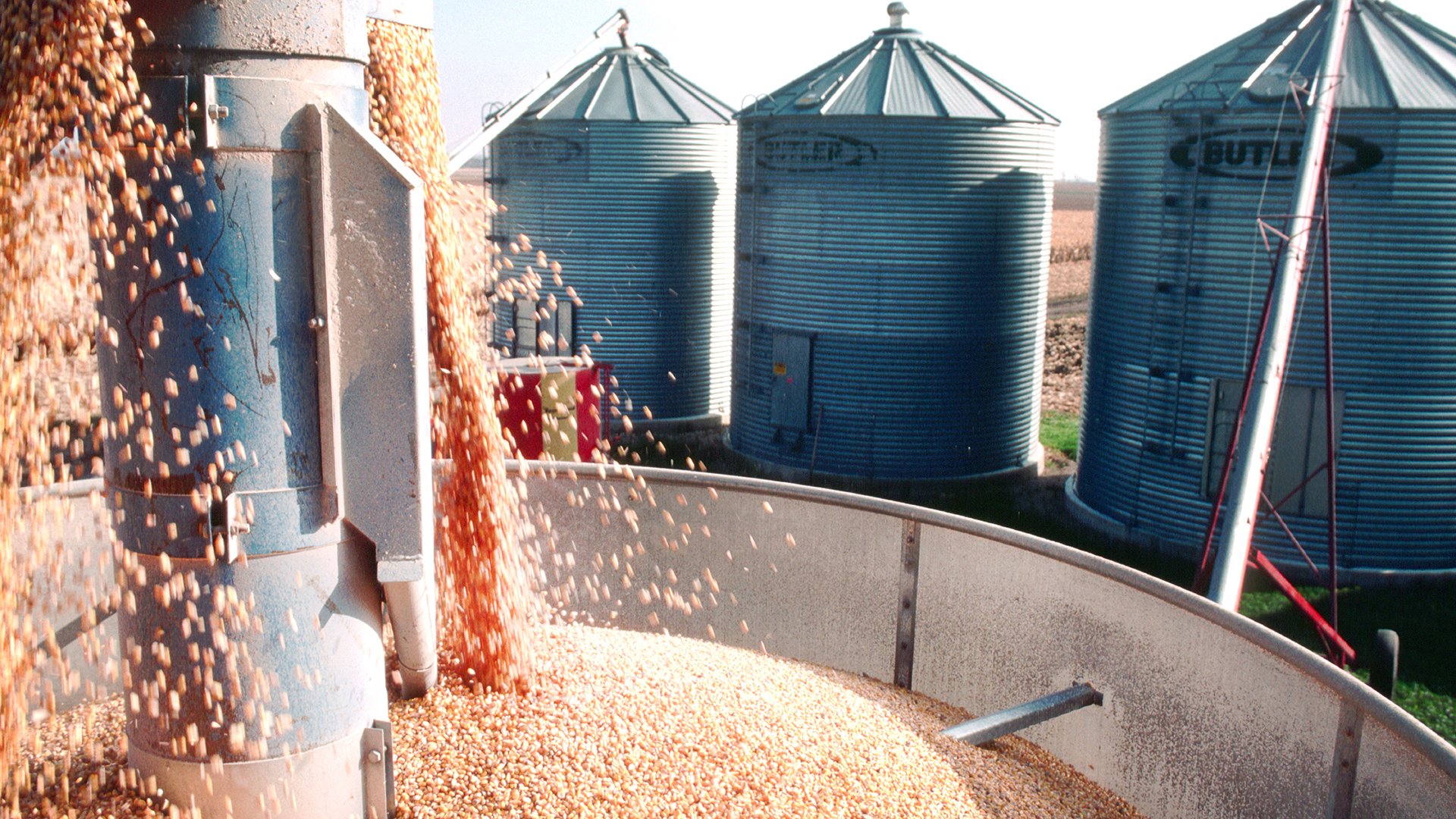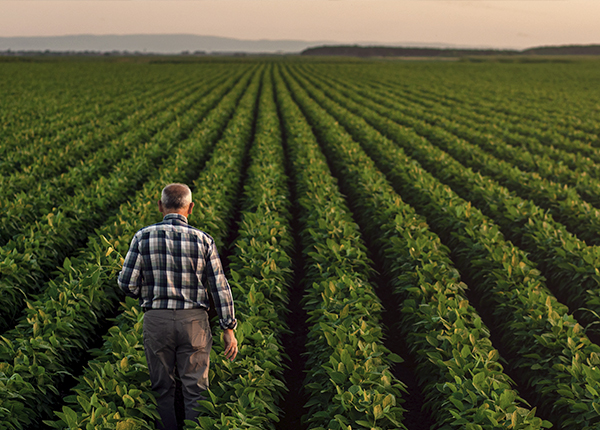Digging In: Risks and Challenges Around Grain Transportation
By Alliant
Grain is one of the most difficult commodities to transport as it is prone to a number of hazards such as moisture or self-heating or contamination. Bruce Droz speaks with Lee Tilleman, Alliant Agribusiness, on the most common concerns surrounding grain transportation and grain handling safety. The two explore utilizing trucking, rail systems, rivers and waterways and explore ways to reduce loss and risk exposures associated with each mode of transportation.
Intro (00:01):
You're listening to Digging In where we dig into the insurance topics, trends, and news surrounding all things Agribusiness. Here is your host, Bruce Droz.
Bruce Droz (00:18):
Hello everyone, and welcome to another episode of the Digging In Podcast from Alliant Agribusiness. Today we're going to be talking about all things agriculture with Mr. Lee Tilleman. Lee is part of our Ag Food team based up in the northwest. Hello Lee.
Lee Tilleman (00:36):
Hello, Bruce. It's great to see you again.
Bruce Droz (00:38):
Great to see you too and great to have you with us. Looking forward to our conversation today about agriculture up in the northwest. Now you live in the great state of Idaho and concentrate on, you know, Pacific Northwest and across the northern part of the US. Tell us a little bit about what you see agriculturally up in your neck of the woods.
Lee Tilleman (00:59):
Oh, oh, Bruce. It's a really diverse cross-section of commodities that are grown up in the northwest. We have dry land farming; we have irrigated multiple different types of commodities grown as well. We have fruits and vegetables, potatoes, dryland farming area, you know, we have wheat and barley and canola. Part of the north, northwest, is the pulse capital of the world, which stands for peas, lentils, and beans. And so we see just about a little bit of everything out here in the Northwest.
Bruce Droz (01:32):
Well, I know it's a beautiful area and there is quite a bit of diversity. There's a lot of grain anchorage. Talk a little bit about what you see from an insurance standpoint, the exposures, and some of the things that you deal with in the world of grain.
Lee Tilleman (01:48):
There is a lot of grain growing out here in the northwest. And there's, you know when I look at grain warehouses, it kind of breaks down into three different operations. They obviously have the storage of the commodities, but transportation is a big part of their operations as well. And then obviously the marketing of the grain when they're purchasing the grain from the growers and then selling the product to the exporters or to their final destination.
Bruce Droz (02:16):
And when you say transportation, a lot of times we think about trucks, but talk about the transportation piece a little bit.
Lee Tilleman (02:22):
Yeah, so obviously, you know, trucks are a big part of the transportation piece of their operations, but they can also receive or ship their commodities via by rail. That's a big piece of it. We also have a river system out here that these grain companies will use, and so they're loading barges on their river facilities and shipping the commodities down river to Portland to the exporters. And then obviously it's loaded onto vessels through the blue water terminals as well. So pretty diverse types of transportation used to ship these commodities.
Bruce Droz (02:58):
And when you're talking about grain, you're talking about large quantities, big bulk shipments. So clearly, you know, rail, barge... Barge, travel must bring some unique insurance exposures and coverages to the picture. How do you deal with that?
Lee Tilleman (03:13):
Yeah, it really does because we have two main barge companies out here that will come in and pick the barges up, once our clients have the barges filled, you know, we look at the contracts that our clients have with these barge companies and it'll change, not often, but those contracts can change as to when and where the insurance attaches to the commodities and that obviously affects our clients when they need to start coverage on that commodity and when they need to stop it. Recently we worked with the barge companies because the agreement had changed and in a normal situation, when the barge company hooks onto that barge, the barge company becomes responsible for that commodity down the river. And they had actually changed their contract where the grain companies were going to be responsible for it. And so, we got heavily involved in that and we negotiated an agreement between the barge companies and the grain companies where the barge companies kind of did a 180 and started insuring the product again. But it gets pretty involved trying to figure out these contracts and when insurance starts and when it ends.
Bruce Droz (04:23):
Well, that's very interesting. When we think about barges going down the river and what can happen to the grain, obviously if there's an accident of some sort and the barge sinks, that's going to be an issue. But what else do you see? What else can happen that everybody worries about in terms of exposures during that shipment process?
Lee Tilleman (04:40):
Sure, yeah, obviously the barge sinking is, you know, one of the main concerns. But it wasn't too long ago we had a barge that was being loaded and our client was actually putting smokey grain onto the barge as they had a hot bearing in their facility. So that hot bearing was causing the grain to start to smoke and the smokey grain was put on the barge. The client called us asking us what they should do, and so we helped them out, we connected them with a salvage company to try to pull some of that smokey grain off. And at the end of the day, we didn't have to pull all of it off and we were able to get the barge reloaded and shipped down the river without any issues. Wind is also an issue going down the river. And the last barge that actually hit bottom and tore a little hole in the barge was caused because it was too windy and the wind pushed the barge out of the main shipping channel. And so that was a recent situation that we dealt with as well.
Bruce Droz (05:40):
Wow. So Lee, are there any specific coverages that are on the unique side to deal with some of the exposures for the barge shipments?
Lee Tilleman (05:48):
There is. There are several very specific coverages that need to be endorsed onto policies. Probably one of the biggest ones that we deal with is called Lay Day coverage. And where this coverage comes into play is when our clients are loading the barges, the commodity becomes waterborne because it's sitting on the barge. And most policies, most domestic policies, they exclude waterborne cargo. And so obviously when the grain hits the barge, it's now considered waterborne cargo and it's excluded. And so, we add what's called a Lay Day endorsement, which covers the grain while it's sitting on that barge. It's written with ocean marine type policy or cargo policy, and it'll cover that grain while it's sitting there being loaded onto the barge and it covers it until the barge company comes and hooks onto that barge and moves it down the river.
Bruce Droz (06:43):
Well, that's very interesting. Yeah, there's a little gap in there that Lay Day definitely is designed to fill well, before we leave the river, are there any other exposures that we should be thinking about?
Lee Tilleman (06:55):
You know, one thing we haven't touched on is the workers' comp for the river workers. There's a federal law out there called USL&H that requires anybody that's working near water, they need to carry this special type of workers' comp coverage. The USL&H is very specific to cover that exposure. Obviously, our grain companies that are loading these barges, they're working along the waterways and so they are within that requirement of providing this coverage to their workers. There's only a handful of carriers out there that actually provide this coverage. And the rates are much higher than what you would see in just the normal workers' comp area. The reason the rates are so high is because the benefits are much, much better than what you would see on a normal work comp policy as well. But, you know, we want to make sure that our workers are covered, they're out there climbing on the barges, opening up hatches and so there are some higher inherent risks with loading those barges and we make sure that we provide this USL&H coverage to all of our river facilities as well.
Bruce Droz (08:00):
Oh, that's an excellent point. You know, the various states govern workers' comp on a state-by-state basis, but that USL&H is more of a nationally regulated line of coverage. Well, let's get away from the water and get away from the river here a little bit and back into the dry land. What kind of risks are you seeing for grain accounts, either through storage or other types of exposures that you're working with?
Lee Tilleman (08:30):
Sure. So one of the biggest things that we deal with on a day-to-day basis is the transportation of the product when it first comes into our facilities. And obviously, this can happen by truck or rail, but the majority of it is by truck. And the trucks are operated either by the farmers or third-party contract haulers. And the issues we run into there, is on the farmer's side, these farmers will use the same trucks to haul wheat with as they do to haul treated seed with. And so they'll bring treated seed to their farms to obviously plant the seed. And then when they're done using those trucks, we hope they clean them out, but that doesn't always happen. And if they don't get them cleaned out adequately, they start hauling grain back into our facilities and we're dumping them into pits obviously.
And all of a sudden, we start seeing treated seed in this grain that they're dumping into our facilities. And so, you know, we've had a lot of conversations with our clients to stress to them the importance of communicating with their growers to clean out those trucks. They send it out in their monthly newsletters, they talk to the growers at grower meetings. A lot of times, they'll have a message at their annual meeting to just reiterate and confirm with these growers that they're cleaning out their trucks as best as they possibly can. Because when you get treated seed in a big, you know, one hundred-thousand-bushel tank, it's very difficult to remove it and it can wreck the entire value of that entire one hundred-thousand-bushel tank with just one truckload that has some treated seed in it. So, we really stress to our clients for them to stress to their growers to clean out those trucks.
On the other side of that, we have our third-party contract haulers that could be hauling wheat into our facilities as well. And the issue we run into there is similar to the growers, a lot of these guys, they don't haul just grain. They'll haul fertilizer, they haul feed, they haul all kinds of things with the same trailer. And we've had several situations where the trucker will haul fertilizer the day before they haul grain and they don't get that fertilizer out of the trailer completely, and then they load it full of grain and then come into our facilities and again, just like the growers, they'll dump it into our facilities and then all of a sudden, we have this entire tank of grain contaminated with fertilizer. Luckily those types of incidents, there's less of them happening year over year because of the awareness that we've brought, and we've found ways to clean the fertilizer out a little better than we've been able to clean out the treated seed. We work with salvage companies that specialize in cleaning that stuff out, and we're able to help our clients try to mitigate that loss as best as we can.
Bruce Droz (11:16):
Now, Lee, in a worst-case scenario, when something like that happens, if they're able to pinpoint the source of the contamination, like let's say a specific trucking firm that they're able to do some testing and find the contaminant in the trailer. Are they able to financially recoup from the trucker's insurance? Or have you seen other situations like that?
Lee Tilleman (11:40):
Yeah, so we have been able to identify it in a few situations, who the source of the contamination is. It's been very difficult to subrogate against those parties for several different reasons. Some of the reason is a farmer may not be carrying large enough limits or contract haulers, they carry the minimum limits available to them, you know, or that's required of them. So that comes into play. It's been very difficult to subrogate back against the third parties that are responsible to collect on this exposure.
Bruce Droz (12:13):
Hmm, very interesting. So we've talked about contractual issues. Circling back to the transportation piece and contractual concerns, what about rail? Because railroads are notoriously somewhat difficult to work with in terms of contracts. How can the grain companies protect themselves in those situations?
Lee Tilleman (12:33):
Well, you know, as you mentioned or alluded to the railroads are very monopolistic in nature when we've been dealing with them. It's kind of been their way or the highway as far as contracts go. If we want their service, we have to sign their contract and there isn't a whole lot of negotiations. And those contracts are one-sided in favor of the railroad obviously. So, what we've kind of focused on is when a situation does occur and the railroad's responsible - which if they're in motion and their engines are attached to our trailers, they do take responsibility for it. We have been able to work with the railroads to try to settle the claim as quickly as possible. The more proactive our client is with getting salvage companies out to the site and trying to clean up their grain, if it's just their rail cars involved in the rollover or the derailment, it seems like that helps the claim settle quicker rather than just waiting on the railroad to clean it up.
Bruce Droz (13:36):
Lee, one of the things that we deal with in any food-related product, is perishables and some are more perishable than others and more quickly than others. But what do you deal with in the grain space that falls into that category?
Lee Tilleman (13:50):
We do have commodities that will go out of condition. Some, like you mentioned, some quicker than others. And so, we really try to stress with our clients proactively manage that exposure. It's fairly simple, but it is time-consuming for our clients to manage the exposure. A lot of these commodities like canola, they do have quite a bit of oil within the commodity itself, and if you don't turn them, it'll start heating up and actually self-combust and start a fire if you're not managing it adequately and on a regular basis. So, we really stress to our clients, you know, have a proactive management plan, turn that product, you know, move it from bin to bin to make sure that it's not setting and starting to cake up and starting to internally combust. We have clients that use heat guns as well, that measure the temperature of the product to make sure it's not heating up to help them manage that. Because at the end of the day, grain going out of condition is not an insurable event. And so, we try to help them lower their risk by helping them manage that process of turning the grain and measuring the temperatures and all those risk management steps to alleviate that exposure.
Bruce Droz (15:05):
Well, Lee, I want to thank you for spending some time with us today. You live in a beautiful part of the country. I'm a little jealous. And for all the listeners out there, thank you for listening. For more information about Alliant Agribusiness, go to www.alliant.com.
Alliant note and disclaimer: This document is designed to provide general information and guidance. Please note that prior to implementation your legal counsel should review all details or policy information. Alliant Insurance Services does not provide legal advice or legal opinions. If a legal opinion is needed, please seek the services of your own legal advisor or ask Alliant Insurance Services for a referral. This document is provided on an “as is” basis without any warranty of any kind. Alliant Insurance Services disclaims any liability for any loss or damage from reliance on this document.
Thanks for your message.
We’ll be in touch shortly
News & Resources




